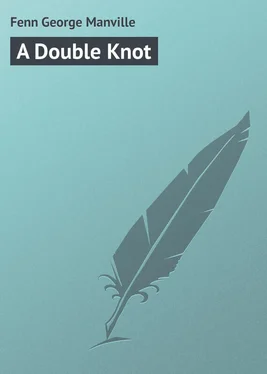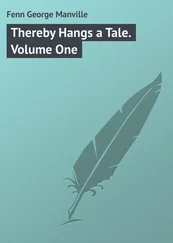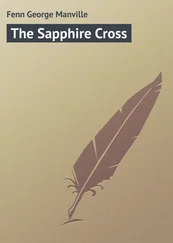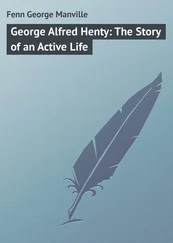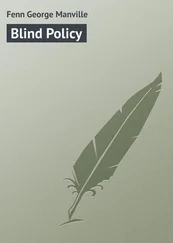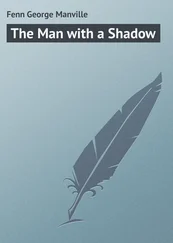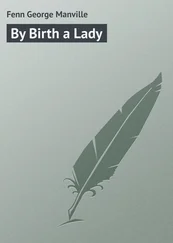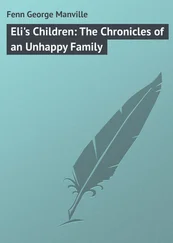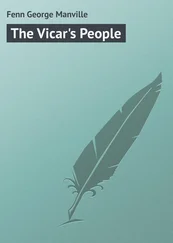George Fenn - A Double Knot
Здесь есть возможность читать онлайн «George Fenn - A Double Knot» — ознакомительный отрывок электронной книги совершенно бесплатно, а после прочтения отрывка купить полную версию. В некоторых случаях можно слушать аудио, скачать через торрент в формате fb2 и присутствует краткое содержание. Жанр: foreign_prose, на английском языке. Описание произведения, (предисловие) а так же отзывы посетителей доступны на портале библиотеки ЛибКат.
- Название:A Double Knot
- Автор:
- Жанр:
- Год:неизвестен
- ISBN:нет данных
- Рейтинг книги:4 / 5. Голосов: 1
-
Избранное:Добавить в избранное
- Отзывы:
-
Ваша оценка:
- 80
- 1
- 2
- 3
- 4
- 5
A Double Knot: краткое содержание, описание и аннотация
Предлагаем к чтению аннотацию, описание, краткое содержание или предисловие (зависит от того, что написал сам автор книги «A Double Knot»). Если вы не нашли необходимую информацию о книге — напишите в комментариях, мы постараемся отыскать её.
A Double Knot — читать онлайн ознакомительный отрывок
Ниже представлен текст книги, разбитый по страницам. Система сохранения места последней прочитанной страницы, позволяет с удобством читать онлайн бесплатно книгу «A Double Knot», без необходимости каждый раз заново искать на чём Вы остановились. Поставьте закладку, и сможете в любой момент перейти на страницу, на которой закончили чтение.
Интервал:
Закладка:
“Just like you, Clo,” retorted the other.
“If you call me Clo again, I’ll – I’ll poison you.”
“Shall if I like: Clo, old Clo – Jew – Jew – Jew! There!”
As she spoke, Marie turned her mocking countenance to her sister, and finished off by making what children call “a face,” by screwing up her mouth and nose; desisting, however, as Clotilde made a dash at the water-glass to throw it at her head, and then made a feint of spitting at her in a feline way.
The whole affair seemed to be more the quarrel of vulgar, spoiled children of nine or ten than an encounter between a couple of grown women in the springtide of their youth, and Ruth silently glanced from one to the other with a troubled, half-pitying expression of countenance; but she did not speak until the noise had begun to lull.
“Please don’t say that I broke the glass,” she said at last.
“I shall. Hold your tongue, miss. She broke it through her wretched carelessness, didn’t she, ’Rie?”
“Give me back the French book, and I’ll tell you,” was the reply.
“Take your nasty old French book,” said Clotilde, throwing it back. “I’ve read it all, and it’s horribly naughty. Now, then, didn’t she break the glass?”
“Yes,” said Marie, arranging her shabby morning dress, and standing before the fragments of the toilet-glass, a handsome, lady-like girl, whose beauty no shabbiness of costume could conceal.
“There,” said Clotilde, “do you hear, Cindy? You broke the glass, and if you say you didn’t I’ll make your wretched little life miserable.”
“Very well, dear, I’ll say I did,” said Ruth calmly.
“Hist, ’Rie! The book!” whispered Clotilde, her sharp ears having detected a coming step.
Marie made a pantherine bound across the room, and thrust the book between the mattress and palliasse just as the handle rattled, and a tall, gaunt elderly woman entered the room.
She was not pleasant to look upon, for there was too much suggestion of a draped scaffold erected for the building of a female human figure about her hard square bony form, while her hard face, which seemed to wrinkle only about the forehead, as if it had never smiled since childhood, was not made more pleasant by the depth and darkness of the lines in her brow all being suggestive of the soap and flannel never probing their depths, which was not the case, however, for she was scrupulously clean, even to her blonde cap, and its side whiskers with a sad-coloured flower in each.
“Morning, children,” she said harshly. “Your aunts ’ll be down directly. You ought to be dressed by now.”
“Morning, nurse,” said the girls in chorus.
“Ruth’s so slow,” said Clotilde.
“Then do your hair yourself,” said the woman roughly. “Ruth, child, turn down that bed, and open the window.”
Their actions before her arrival had been those of children; she treated them like children, and they were as obedient and demure now as little girls, while the woman placed a large white jug containing a tablespoon upon the table, and a plain tumbler beside it.
Ruth began to open the bed, and Marie cast anxious eyes at the part where her French novel lay perdu .
“’Tisn’t physic morning again, nurse,” said Clotilde pettishly.
“Yes it is, miss, so don’t you grumble. You know it’s Wednesday as well as I do.”
Clotilde turned her head away, and gave her teeth an angry snap as she went on rapidly dressing, while the new arrival poured out half a tumbler of a dark-brown fluid from the jug, after giving the said jug a twirl round to amalgamate its contents. This tumbler was handed to Clotilde.
“I’m not ready, nurse,” she said pettishly; “leave it on the table, and we’ll take it. We shall be down directly.”
“I don’t go till I can tell your aunts that every drop’s taken,” said the woman sturdily. “I know your tricks, making Miss Ruth drink it all. Both of you did last time.”
“Did Ruth dare to say we did?” cried Marie sharply.
“No, she didn’t, miss, so don’t you go in a pet.”
“Then how could you tell?” cried Clotilde.
“How could I tell, big baby?” said the woman scornfully; “why, wouldn’t three doses make her ill?”
“I don’t know. Ugh! filthy stuff!” said Clotilde, taking the tumbler, drinking off the brown draught, and shuddering afterwards. She set down the glass, which was, after another flourish of the white jug, the spoon being held captive by the woman’s thumb, half filled again.
“Now, Miss Marie.”
Marie made a grimace, and drank her portion in turn, after which Ruth swallowed hers with the patience and long-suffering of custom.
“Now, Miss Clotilde,” said the woman, picking out something dark from the bottom of the jug with the spoon, “here’s your prune.”
This was held out in the spoon, and it was ludicrous to see the handsome, womanly girl open her ruddy lips to admit the brown swollen morsel, a similar process being gone through with Marie and Ruth.
“There, children, don’t make such a fuss about it,” said the woman. “It’s lucky for you that you’ve got aunties who take such care of you. Pretty skins and complexions you’d have if you weren’t looked after, and when you grow up, if you’re wise, you’ll treat yourselves just the same. Now then, make haste down.”
This was uttered as she left the room and closed the door, after which Clotilde waited till her steps were inaudible, when she stamped with both her feet, and ground her teeth like an angry child.
“Oh, oh, oh!” she cried. “The disgusting, filthy stuff. I’m sick of it all, ’Rie. I’ll run away with the first man who asks me, even if he’s a sweep. I hate it; I hate everything; I hate myself, and won’t submit any longer. We’re not children, and I won’t have it. Where’s our spirit, that we don’t rebel?”
“Where could we go? What could we do?” replied Marie. “It’s horrible. How could we bear it all these weary years?”
She clasped her hands, and threw herself into her chair, rocking herself to and fro, while Ruth crept softly to her side, and placed her blonde face against the riper, rounder cheek of her cousin.
It was a mute way of showing her sympathy, and Marie felt it to be so, for she turned quickly and kissed her just as the loud jangle of a large hand-bell was heard from below, and Clotilde returned from the open window.
“Come down, girls,” she said bitterly; “there’s the bell. Old Markes didn’t see the broken glass. Go on, Ruthy, and let’s get prayers over, or you’ll be afraid to tell that fib.”
The bell was still clanging as the three girls went down the one flight of stairs contained in their aunts’ share of the private apartments at Hampton Court, at the bottom of which stairs a tall, thin young man, in a striped jacket, was frantically swinging the noisy instrument to and fro – having to stop, though, to allow the young ladies to pass, when he set down the bell with a clang upon the hearth-stoned floor in a dark corner, fiercely dragged a form from under the stairs, and carried it into the dining-room.
It was a brilliant morning in May, but the one window of that dark room received none of the sunshine, for it looked north, over a festive-looking yard or quadrangle, whose stones were mossy and green, kept comfortably damp by their proximity to a basin of water, out of which spurts of water rose from what looked like pieces of black gas-pipe; while three bloated gold and two silver fish swam solemnly round and round, gaping placidly, and staring with apoplectic eyes upwards at the strange phenomenon of what must have seemed to them like a constant shower of rain.
The room was lofty, and panelled in regular compartments, all painted a pale drab, as were also the sides of the floor where the well-worn, indescribable-patterned carpet did not reach; and over this painted portion chair-legs gave uncomfortable scroops.
Читать дальшеИнтервал:
Закладка:
Похожие книги на «A Double Knot»
Представляем Вашему вниманию похожие книги на «A Double Knot» списком для выбора. Мы отобрали схожую по названию и смыслу литературу в надежде предоставить читателям больше вариантов отыскать новые, интересные, ещё непрочитанные произведения.
Обсуждение, отзывы о книге «A Double Knot» и просто собственные мнения читателей. Оставьте ваши комментарии, напишите, что Вы думаете о произведении, его смысле или главных героях. Укажите что конкретно понравилось, а что нет, и почему Вы так считаете.
